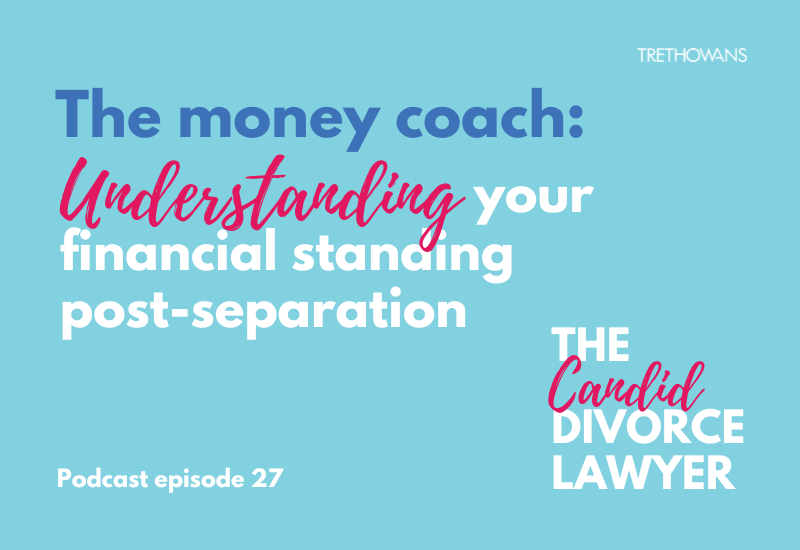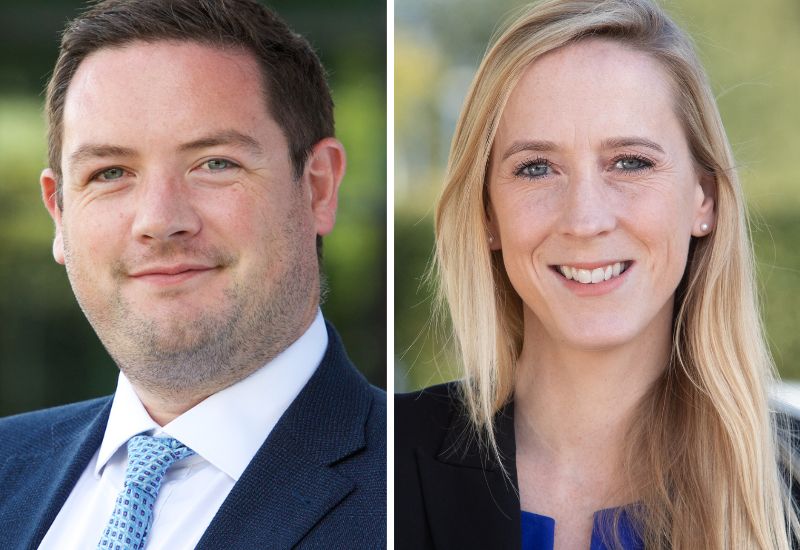- 27 Oct 2023
- •
- 4 min read
History of LGBT law in England & Wales

Today we look back at a history of LGBTQ+ laws in the UK and how individuals’ personal struggles and legal battles have shaped different areas of legislation and policy.
Early Laws (1500-1800)
| Law | Description |
| Buggery Act 1533 | Same-sex sexual activity was characterised as “sinful” and, under the law was outlawed and punishable by death. The Act defined buggery as an unnatural sexual act against the will of God and Man |
| Section 15 of the Offences against the Person act 1828 | Simplified the law – Buggery remains an offence punishable by death. |
| 27 November 1835 | James Pratt and John Smith were hanged outside Newgate Prison in London for having sexual relations. |
| Section 61 of Offences against the Person Act 1868 | This section abolished the nominal death penalty for buggery, and provided instead that a person convicted of this was liable to be kept in penal servitude for life or for any term not less than ten years. |
LGBTQ+ and the Military
| Criminal Justice and Public Order Act 1994 | The age at which homosexual acts were lawful was reduced from 21 years to 18. Parts allowed the dismissal of a seafarer from a merchant navy vessel on the ground of homosexual activity. Includes a provision for a “homosexual act” to constitute a ground for discharging a member of Her Majesty’s armed forces from the service. |
| Army and Air Force Acts 1955 | UK first prohibited homosexuality in the army and air force. |
| Smith and Grady v UK 1999 | ECHR found that investigation and dismissal of men in HM Forces on the basis of homosexuality violated their Article 8 right to a private life. |
| New Armed Forces Code of Social Conduct 2000 | The UK government introduced this new sexual-orientation-free policy, removing homosexual behaviour as a ground for discharge. |
| Alan Turing’s Pardon 2010 | Alan Turing, the famous WWII code-breaker was posthumously pardoned after being convicted of gross indecency in 1952 |
| Policing and Crime Act 2017 | The act implements the Alan Turing law, offering an automatic pardon to men convicted for homosexual acts that are no longer considered criminal offences. |
| Merchant Shipping (Homosexual Conduct) Act 2017 | Repealing parts of the Criminal Justice and Public Order Act 1994 that allowed homosexual acts to be grounds for dismissal from the crew of merchant ships. |
| Armed Forces Bill 2021 | It seeks to automatically pardons all criminal records given for having gay sex within the UK military. It was also announced that military personnel dismissed on grounds of homosexuality will be able to have their service medals restored if they had been taken away. |
LGBTQ+ in the Home
| Section 11 of the Criminal Law Amendment Act 1885 | This made gross indecency a crime and was used to prosecute homosexuals where sodomy could not be proved. Female homosexuality was not legislated on for fear it would encourage women to explore such acts. |
| Dudgeon v United Kingdom (1981) | The ECHR held that s.11 of the Criminal Law Amendment Act 1985 violated Dudgeon’s Article 8 rights. This was the first case at the ECHR decided in favour of LGBTQ+ rights. |
| Homosexual Offences (Northern Ireland) Order 1982 | The order decriminalised homosexual acts between consulting adults in Northern Ireland as a result of Dudgeon v UK. |
| Convictions of 1954 | A series of well-known men were convicted for homosexual offences including Lord Montagu of Baeaulieu (politician), Michael Pitt Rivers (landowner) and Peter Wildeblood (journalist) who were all convicted regarding the same incident. |
| The Report of the Departmental Committee on Homosexual Offences and Prostitution 1957 | Following these public convictions, the ‘Wolfenden Committee’ was formed and The committee recommended that “homosexual behaviour between consenting adults in private” should no longer be a criminal offence. |
| Sexual Offences Act 1967 | 10 years after the Wolfenden Committee’s first report, sexual activity between men was decriminalised. Sexual activity between women was never subject to the same legal restriction. |
| Sutherland v United Kingdom 1997 | The ECHR found that fixing a different age of consent homosexual relations between males (age 18) and females (age 16) was discriminatory and a breach of Article 8 (the right to a private life). |
| Sexual Offences (Amendment) Act 2000 | Reduced the age of consent for homosexual men from 18 to 16 (to match straight and lesbian sexual activities). |
LGBTQ+ in Politics
| Conservative Party Campaign of 1987 | The Conservative party issued posters claiming that Labour wanted several LGBTQ+ books (including ‘Young, Gay and Proud’) to be read in schools to children as young as five or six. |
| Section 28 of the Local Government Act 1988 | Enacted on 24 May 1988, the amendment stated that a local authority “shall not intentionally promote homosexuality or publish material with the intention of promoting homosexuality” or “promote the teaching in any maintained school of the acceptability of homosexuality as a pretended family relationship“. |
| Grassroot Campaigns 1988-2003 | Grassroot Campaigns 1988-2003 Lesbians stormed the BBC News Studio during the 6 o’clock news. A group of lesbian activists abseiled into the House of Lords after the vote took place. The largest LGBTQ+ march of its time took place in Manchester City Centre. |
| Section 122 of the Local Government Act 2003 | Repeal of section 28 of the Local Government Act 1988. |
| Stonewall Created – 1989 | In 1989 the LGBTQ+Q+ charity Stonewall was created by a small group of those active in the protests against Section 28. |
LGBTQ+ in the Workplace
| Employment Equality (Sexual Orientation) Regulations 2003 | Making it unlawful to discriminate against someone in work because of their sexual orientation. |
| Whitfield v Cleanaway UK 2005 | The first successful case brought under the Act for both harassment and direct discrimination. |
| English v Thomas Sanderson Blinds Ltd 2008 | This key case made clear that the Act’s protection extended to those who were perceived to be LGBTQ+ as well as those who actually were. |
| Equality Act 2010 | Consolidating existing LGBTQ+ legislation. Also making it unlawful to dismiss someone in the military for homosexual activity. |
| Taylor v Jaguar Land Rover 2020 | Employment Tribunal held that the category and protection of ‘gender reassignment’ under the Equality Act 2010 extends to individuals who identify as gender fluid and non-binary. |
| Maya Forstater v CGD Europe and Others 2021 | The Employment Appeal Tribunal held that gender critical beliefs can be protected under the Equality Act 2010 if they are meet the Grainger Criteria. However, it confirmed that it does not mean that those holding gender-critical beliefs can misgender trans people. |
LGBTQ+ in Marriage and Family
| Goodwin v United Kingdom 2002 | The ECHR found the UK in violation of Article 8 for refusing to recognise a transsexual’s new sexual identity. This consequently led to breach of Article 12 (right of marriage and family). |
| Adoption and Children Act 2002 | Same sex couples permitted to legally adopt. |
| Gender Recognition Act 2004 | Transgender people have the ability to apply to change their legal gender. |
| Civil Partnership Act 2004 | Same sex couples allowed to legally commit to each other. |
| Steinfeld and Another v Secretary of State for Education 2017 | The UK Supreme Court held that the Civil Partnership Act as incompatible with human rights law for failing to allow opposite-sex couples entering a civil partnership as well as a marriage. |
| Civil Partnership Act 2004 (amended) | The Act was amended in 2019 to allow opposite-sex couples to form civil partnerships. |
| Government Consultation 2011 | Liberal Democrat MP Lynne Featherstone announces a government consultation on how to implement equal marriage for same sex couples. |
| Marriage (Same Sex) Act 2013 | Same sex marriage is made lawful. |
As of September 2023, the following countries have laws that can prescribe the death penalty for homosexuality:
- Afghanistan
- Brunei
- Iran
- Nigeria
- Pakistan
- Saudi Arabia
- Qatar
- Somalia
- Yemen
- United Arab Emirates
- Mauritania
- Uganda





